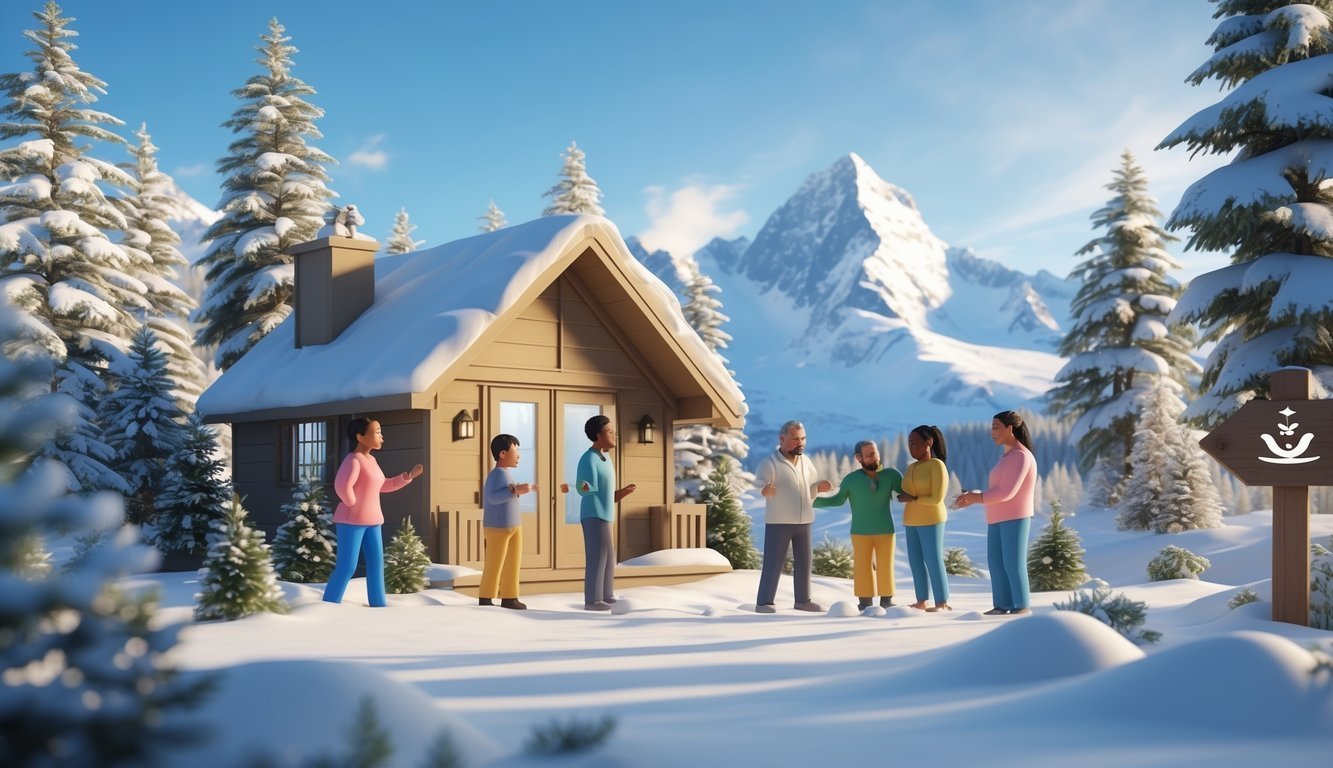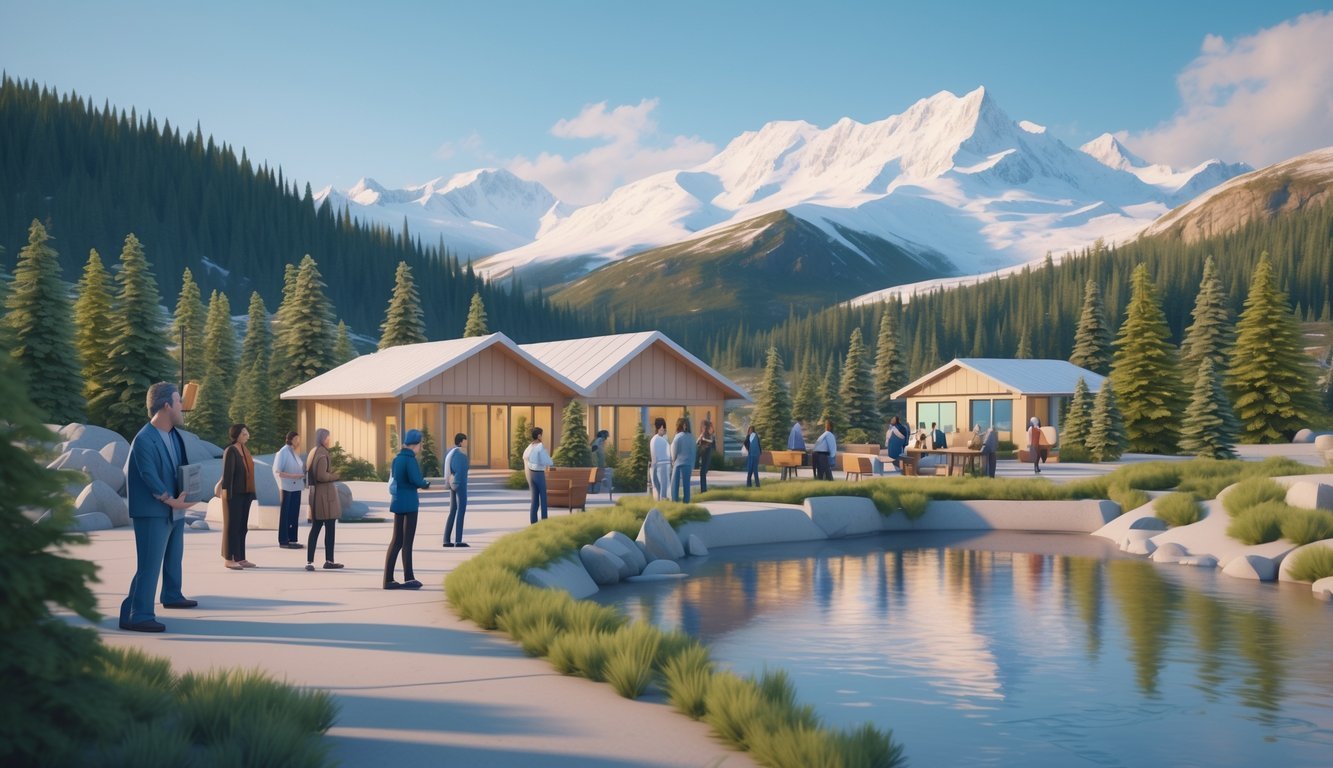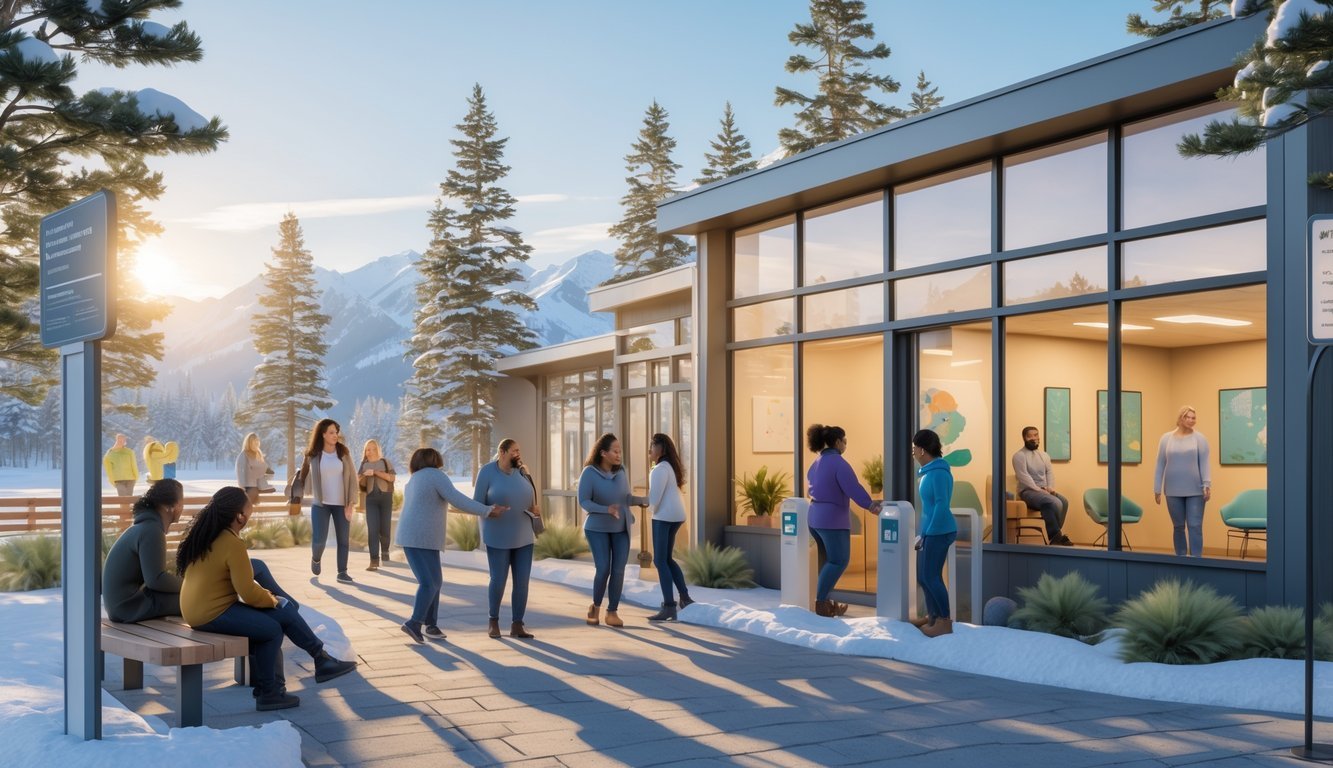PsychNewsDaily Publishers
100 Summit Drive
Burlington, MA, 01803
Telephone: (320) 349-2484
PsychNewsDaily Publishers
100 Summit Drive
Burlington, MA, 01803
Telephone: (320) 349-2484
Alaska offers various affordable mental health care options, including crisis intervention, counseling, and support services funded by the Alaska Mental Health Trust Authority and community organizations.

Trying to find affordable mental health care in Alaska can get pretty stressful, especially when you’re already dealing with emotional or psychological struggles. The good news is, Alaska has several free mental health services through state programs, nonprofits, and community health centers, so you can get the support you need without worrying about the cost.
The Alaska Mental Health Trust Authority puts money into programs and services that help Alaskans get mental health care for free. They cover things like crisis intervention, counseling, and long-term support. You’ll find everything from emergency hotlines to ongoing therapy and case management, all designed to help you through your mental health journey.
If you’re facing a mental health crisis, need regular counseling, or want help managing ongoing conditions, it helps to know what’s out there. The trick is figuring out who to contact, how to get started, and what support you can count on to keep your mental health on track.

Alaska has all kinds of free mental health programs through state agencies, tribal groups, and local health centers. These services make sure people can get care, even if they don’t have insurance or can’t pay.
Most people in Alaska can use some kind of free mental health service. A lot of programs don’t require insurance or have strict income limits.
Community health centers are open to everyone. They use a sliding fee scale based on your income, but even if you can’t pay, they often still help.
Tribal health organizations focus on Alaska Native people and their families, usually at no cost for tribal members.
You might get extra help if you:
Crisis services stay open to all. This covers emergency mental health care and suicide prevention.
The Alaska Mental Health Trust Authority funds projects that make mental health services better all over Alaska. They give grants to organizations working with people who have mental illness.
Community health centers pop up in most towns and cities. They offer counseling and psychiatric care.
Tribal health corporations serve Alaska Native communities. They blend traditional healing with modern treatment.
State mental health programs run crisis intervention and emergency services. The Division of Behavioral Health in Alaska runs a lot of these.
Nonprofits also offer free counseling and support groups across the state.
Free mental health services in Alaska cover both urgent crisis help and longer-term treatment.
Crisis services give 24/7 support, including:
Ongoing treatment means individual and group counseling. You’ll find therapy for depression, anxiety, trauma, and substance use.
Psychiatric services help with medication management. Some programs even offer free or low-cost meds.
Support groups meet regularly and focus on specific mental health issues.
Cultural programs for Alaska Native communities mix traditional healing with mental health care.

Several organizations in Alaska offer free mental health services. They provide everything from peer support groups to case management.
The National Alliance on Mental Illness Alaska chapter offers free mental health support statewide. NAMI Alaska runs peer support groups where you can connect with people who get what you’re going through.
You’ll find groups for things like depression, bipolar disorder, and anxiety. These groups meet regularly in different communities.
NAMI Alaska also runs family support groups. These help your loved ones learn how to support you and themselves.
The organization offers free educational programs too. You can learn about mental health conditions, treatment, and recovery.
NAMI Alaska’s volunteers lead support groups. Many have been through similar challenges, so they really understand.
Community mental health centers work in cities and towns all over Alaska. They provide free or low-cost mental health care, depending on what you can pay.
You can get counseling and therapy here. They offer individual, group, and family therapy.
Case managers help you work through the mental health system. They can guide you to housing, benefits, and other services.
Most centers offer crisis intervention too. You can call or drop by if you need urgent help.
Some centers have special programs for veterans, older adults, or people with substance use issues.
The Alaska Mental Health Trust Authority funds projects to improve mental health care across Alaska. The Trust works on long-term changes for people with mental health needs.
You can apply for mini-grants through their programs, with up to $2,500 per person for mental health needs.
The Trust supports new mental health programs, and sometimes these programs become examples for other communities.
They also work to improve the mental health system overall. The Trust funds training for mental health workers and supports new treatment ideas.
They push for better mental health policies, working with lawmakers to create laws that help people with mental health conditions.

Alaska has several crisis intervention services, including 24/7 phone support, mobile teams, and programs for remote communities. These services give you immediate help in emergencies and connect you to longer-term care.
Careline Alaska is the main crisis hotline for the state. You can talk to trained counselors any time, day or night.
They give free and confidential support. Counselors help with crisis situations and mental health struggles.
Services include:
You don’t need insurance to call. The hotline can connect you to local resources.
You can also use text or chat, so there’s more than one way to reach out.
Mobile crisis teams come to you during emergencies. These teams include mental health pros and trained staff.
They show up at homes, schools, or other places in the community. The teams work with police and emergency services if needed.
Mobile Teams Offer:
Response times depend on where you live. Cities usually get faster help than rural areas.
The teams try to keep you safe at home or in your community instead of sending you to the hospital.
Rural Alaska has its own challenges for crisis help. Distance and weather can make response tough.
Telehealth fills in the gaps for remote places. You can talk to counselors by phone or video.
Some communities have local responders who are trained for mental health crises. These community-based prevention programs help engage and support residents.
Support in Rural Areas:
Alaska helps pay for travel when local services aren’t available.
Native corporations and tribal groups often offer extra crisis support. They understand cultural needs and community strengths.
Long-term mental health recovery usually needs steady support after the first treatment. Alaska has case management services and peer support groups to help you keep moving forward.
Support groups connect you with others who get what you’re going through. These groups meet regularly in different communities.
Some groups focus on things like depression, anxiety, or trauma. Others are more general.
Support groups include:
Support groups give you emotional support and practical tips. You can learn from others and share your own story.
Most groups meet weekly or monthly. Sessions last about an hour or a bit longer, and most don’t charge anything.
Community mental health centers usually host these groups. Churches and community centers sometimes offer space too.
Case management helps you coordinate your mental health care and daily living needs. A case manager works alongside you to create and stick to a care plan that actually fits your life.
Your case manager connects you with things like housing help, job training, or medical care. They can schedule appointments with you and deal with insurance headaches.
Case management services include:
Alaska’s disability services give residents access to support throughout their lives. Case managers work with you to figure out what you need for your health and safety, then set up the right services.
Case managers check in with you regularly. If your needs shift, they tweak your plan.
Most people get case management services through Medicaid or state programs. Sometimes, private insurance covers them too.